CHRIS: A movie came out with you in March. Tell us about it.
LOU FERRIGNO: It's a romantic comedy called "I Love You, Man". I play a Beverly Hills entrepreneur who wants to sell his house, so I hire this guy, played by Paul Rudd, and off we go. It's kind of a detour from my permanent role in “King of Queens”. Here I can finally do a comedy, which I'm particularly happy about.
CHRIS: You are always associated with the TV series "The Incredible Hulk". Maybe that's why some in the business don't take you seriously as an actor?
LOU FERRIGNO: Exactly. That's why this role is so important to me.
CHRIS: How massive were you in the movie? Do you have to lose weight for the role?
LOU FERRIGNO: Not at all. They took me as I am standing there today, weighing 125 kilos.
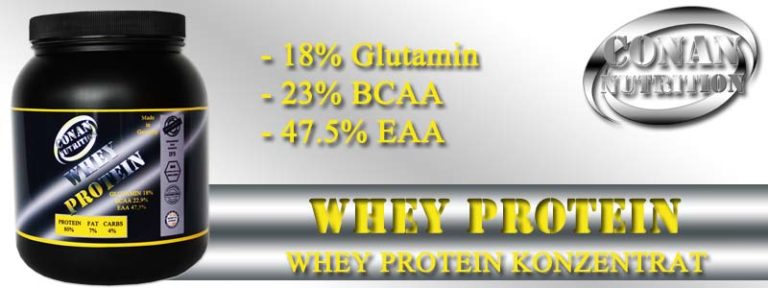
CHRIS: Your opponents were always jealous of your genetics.
LOU FERRIGNO: Really, really. I've always trained very hard. I can hardly bear it when someone says, "I'm going to do a new cycle".
In the studio I only hear the cycle - the hard training I continue to train intensively and consistently, keep my conscience clean and eat sensibly. Most of all, I still have the same passion for bodybuilding as I used to. I train as if I had a competition tomorrow.
CHRIS: It must be great to train in Gold's Gym.
LOU FERRIGNO: Ich hätte als Jugendlicher alles für so einen Job gegeben. Als ich mit 17 oder 18 zum ersten Mal ins Studio ging, in den „R& J’s Health Club“ in Brooklyn, New York, war ich beeindruckt, alle Bodybuilder persönlich
to see. I often met Pete Caputo and Jerry Brainum there. Jerry went to California, trained there, and then told me what was going on in California.
CHRIS: Apparently the children are now stronger than the father.
LOU FERRIGNO: Brent is stronger than me when it comes to pressing, and of course they both have stronger legs. Louie is 1.88 meters tall and weighs about 104 kilos, Brent is 1.83 meters and about 100 kilos. Brent is really massive, he reminds me of Casey Viator. He does squats weighing over 180 pounds! Today I only beat them when curling and rowing. I'm not going to ruin my shoulders with 160 kilos on the bench press! I know my limits. Can't write enough about changing your exercise regimen as you get older. I'm not recovering as quickly as I used to. And of course I can't manage these weights for a long time. If I did that, I would be hospitalized with numerous injuries. You have to listen to your body a lot more. And you don't train that much anymore.
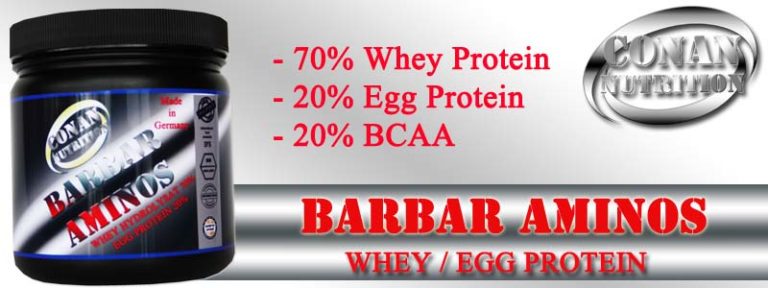
CHRIS: How long have you been training with your sons?
LOU FERRIGNO: For about a year and a half. They're both a bit shy, but I finally got them to go to Gold’s to get used to the atmosphere. There they gained more self-confidence.
CHRIS: Shortly before your last competition, the Masters Mr. Olympia 1994, you had a serious knee injury.
LOU FERRIGNO: Yes, I tore my meniscus a week earlier. But there are no excuses. You do your best and hope for the best. I finished second behind Robby Robinson. Beim Mr. Olympia 1992 I had my comeback in Helsinki after 17 years. Two more years of hard training came at a price, and it hit my knee. After the competition, I cut back on the heavy training. I still train intensely, but not that hard anymore.
CHRIS: You started lifting weights when you were twelve. What advice can you give athletes of all ages from your 45 years of experience?
LOU FERRIGNO: I see that most of them train every part of their body once a week. I mean they should do it twice a week. And they do 20 sets, which is just too much. Do a maximum of ten or twelve per part of the body. You should train the game again after about 72 hours. You can also rotate the exercises. For me, three days of training and a day off are best. I do the chest and back on the first day, biceps and triceps on the second, and the legs on the third. The nice thing is that you can switch exercises at any time and keep them interesting. Volume doesn't matter. How you exercise matters. I do a warm-up set, then four sets of eight to ten repetitions, three exercises per body part. The workout should never last longer than an hour. You can do this a few times a week for up to 30 minutes of cardio. I know one exception: Serge Nubret. He does 50 sets per part of the body. I know that because I trained with him before Pumping Iron. When stretching my legs I said after the twelfth sentence: “Serge, I'm done!” This man was a machine, he is one of my favorite athletes. He was in good shape
and as far as I know, was never injured - he trained intensely, but not too hard.
CHRIS: How much cardio do you usually do?
LOU FERRIGNO: If I train quickly and pay attention to my diet, I don't need cardio. If I want to lose weight, I do 20 minutes on the elliptical trainer or the stationary bike.
CHRIS: How was your bodybuilding beginning. Was it all easy
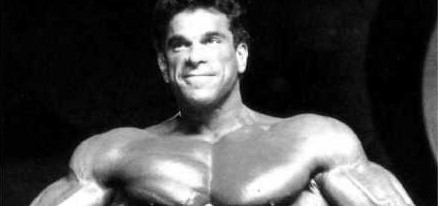 LOU FERRIGNO: Unfortunately not. I was thin and had to struggle to gain weight. When I was 17 or 18 I had thin legs and my chest wasn't great either. But I had muscular arms. But even with good genetics, you have to have the mindset that nothing can stop you. I trained like a madman to grow. There were times, for example, when a girl didn't want me so I went to the studio and worked off my frustrations! This is called inferiority complex. I felt I had to be stronger to impress her, like Incredible Hulk.
LOU FERRIGNO: Unfortunately not. I was thin and had to struggle to gain weight. When I was 17 or 18 I had thin legs and my chest wasn't great either. But I had muscular arms. But even with good genetics, you have to have the mindset that nothing can stop you. I trained like a madman to grow. There were times, for example, when a girl didn't want me so I went to the studio and worked off my frustrations! This is called inferiority complex. I felt I had to be stronger to impress her, like Incredible Hulk.
CHRIS: What are your favorite exercises for the individual body parts?
LOU FERRIGNO: Press the dumbbell for the chest. With every exercise I train in the pyramid system. One set to warm up then four sets of eight to repetitions. I go up to 45 or pounds. Then come flyers. I take 22, 27, 35 and then 40 pounds. Then comes the incline bench press with the barbell. I like to do the flyers in between because that's when the biceps recovers. I take 85 to 100 kilos on the incline bench.
For the arms, I do dumbbell curls on the incline bench, barbell curls, and then Scott curls. Then it's triceps turn. First I do triceps extensions on the cable, then triceps extensions to the forehead while lying down, and finally triceps extensions behind the head while standing.
On day 3, I start with shoulder presses, followed by side raises. Then row upright. Then comes a light workout. I don't do squats like I used to do. I do leg extensions, leg curls and squats on the multi press.
At the multi press I walk up to 100 kilos, heavier weights are pointless. I do more repetitions on the legs, around 12 to 15.
When I feel like doing abs, I do two or three sets of crunches. You have to remember, however, that I only have a minute break between sets and that I train my stomach in all other exercises.
Consistency and intensity are the keys to successful workouts. When I'm on the go, I always try to find a gym for a quick workout. It is always better to do something than nothing.

CHRIS: Do you sometimes feel the pressure to show what you can do?
LOU FERRIGNO: I don't have to prove anything to myself. I'm smart enough to know that doing so would hurt myself. I know my limits. Everyone should think that way, especially as you get older. Too many worry about what they can do on the bench press, squat, or deadlift. You have to train like a bodybuilder, challenge all parts of the body equally and know your limits. If you're really interested in how much you can bench press on one rep, go for the powerlifters.
CHRIS: Do you still train clients in your home studio?
LOU FERRIGNO: Yes. Just me and this one person. Unlike Gold’s, I don't have to worry about getting a certain exercise. And it's hard to work in the studio when you're constantly approached.
CHRIS: What do you think of bodybuilding today compared to before?
LOU FERRIGNO: The symmetry of the earlier days is gone, and so is the camaraderie. The top people at the Mr. Olympia are phenomenal, but they are more about size, density and definition. Dexter Jackson has good symmetry - nice to look at. I would be happy if the sport went back in the same direction and placed more emphasis on posing.
There is more to a champion than having a great body; it must also have a personality. The first time I saw Joe Weider he said, “You should come to California. You could become a Weider superstar. I only have three Arnold, Franco und Frank Zane. You could be the fourth. "
These guys provided electricity on stage. They had that wow factor that is missing today, that unique aura. I think the passion is not the same anymore. You go into the studio and see these guys with ski hats, heavy sweatshirts and long pants, even in the middle of summer. And some are busy with their cell phones, talking on the phone or texting instead of concentrating on their workouts.
Back then, Arnold, Ken Waller, Dave Draper, Frank Zane ... had nothing but t-shirts and shorts. That was real. Today I ask myself: "What am I actually seeing?"
CHRIS: Which of today's bodybuilders do you think stands out the most?
LOU FERRIGNO: I like Ronnie Coleman. He has that wow factor.
CHRIS: Who is the greatest bodybuilder of all time?
LOU FERRIGNO: I would say Steve Reeves and then Arnold. Then me, Sergio Oliva und Ronnie Coleman. There have been so many great bodybuilders; I am one of them. Lee Haney und Dorian Yates were fantastic. Then the boys like draper Larry Scott und John Grimek, Casey Viator Harold Poole. And I have Reg Park und Bill Pearl to forget. Let's make the top 20!
CHRIS: If you hadn't switched to acting as the Hulk at 23, how massive would you have become?
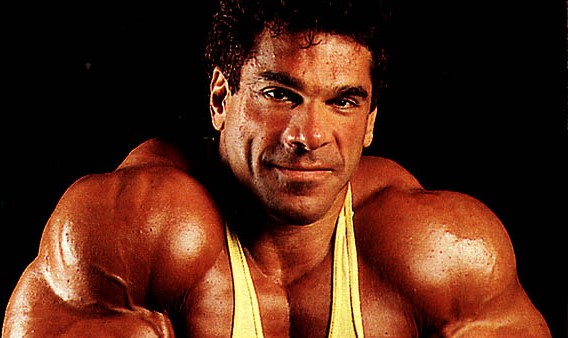 LOU FERRIGNO: I think I would have started with 158 kilos. Arnold would have weighed 120 or 122 pounds if he had continued bodybuilding. Sergio would have put a crazy 118 kilos on stage.
LOU FERRIGNO: I think I would have started with 158 kilos. Arnold would have weighed 120 or 122 pounds if he had continued bodybuilding. Sergio would have put a crazy 118 kilos on stage.
CHRIS: Most fans don't know your story. How many
Have you made movies and TV shows?
LOU FERRIGNO: I've made 37 films in 27 years. Hulk had 86 episodes in five years. Then there was “Trauma Center”. I shot about 20 episodes of “King of Queens”. I also took part in “Wofld’s Strongest Man” and “Superstars” from ABC. Like Arnold, I have proven that you can have muscles and be an athlete ... and still be successful in other areas.
CHRIS: What probably not everyone knows: you are deputy in Los Angeles Country.
LOU FERRIGNO: I did the whole program and was officially appointed deputy sheriff three years ago. My father was a police officer and that always interested me. I reported it to Sheriff Lee Baca and he said, "Why don't you come to us?" I took six months to the sheriff academy. Not an honorary position, but properly in uniform. I crammed like in college. You need to know all about searches, arrests, and the U.S. Constitution. If you can't drive or shoot properly, you fail. Will you in the right! Hand shot, you must be able to shoot with the left.
Sergio Oliva was a police officer in Chicago, Coleman worked as a police officer in Texas for many years.
Last Sunday I was in the Los Angeles Forest. A woman had a serious motorcycle accident. I had to direct traffic and help get her to the emergency room. I like this job because it not only helps but is a real challenge. I also often work in mountain rescue.
CHRIS: I feel a lot safer in your area. Thank you for the interview.
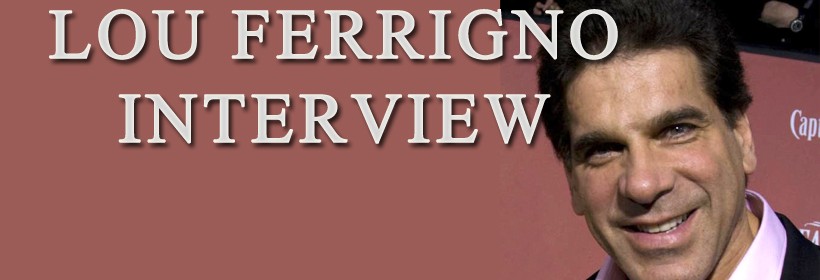
A comment
Comments are closed.